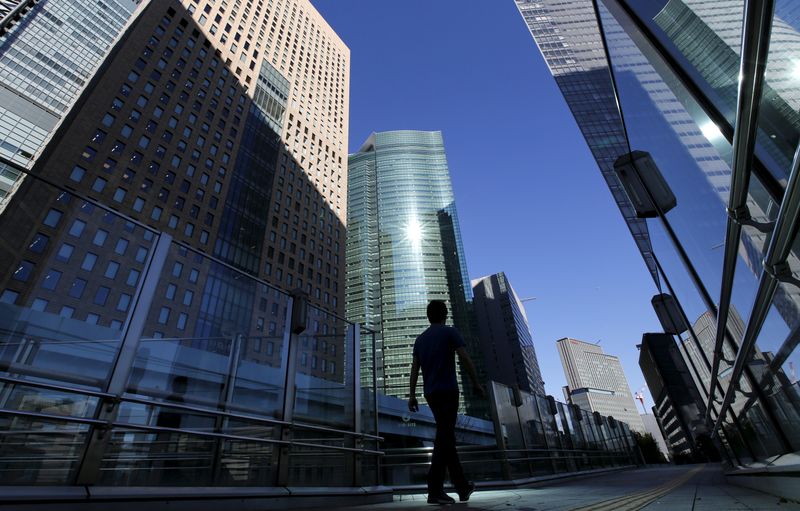By Kiyoshi Takenaka
TOKYO (Reuters) - Most Japanese companies see no need for their government to follow the U.S. in raising tariffs on Chinese imports, saying excessive production capacity in China's industrial sector does not affect them, a Reuters survey showed on Thursday.
U.S. President Joe Biden last month unveiled steep tariff increases on an array of Chinese goods including electric vehicles, batteries and semiconductors, criticising Beijing for generous subsidies and policies that he said help flood global markets with cheap goods.
The European Union has also slapped hefty duties on EV imports and the Group of Seven major economies, which includes Japan, last week echoed concerns about what they called harmful non-market practices by China.
But 61% of respondents to the survey, conducted June 5-14, said there was no need for Japan to embark on similar measures. The rest said Japan should. Around 53% said China's excessive production capacity had little to no impact on their business.
"It could lead to an escalation in measures and countermeasures against each other and economic conditions will get worse," a manager at a chemical company wrote in the comment section of the poll.
In response to the tariffs, China has accused the United States of subverting its own free trade principles and has said the G7 statement lacks factual basis.
The survey of 492 companies was conducted for Reuters by Nikkei Research, with firms responding on condition of anonymity. Roughly 230 companies responded.
The companies were also asked whether they think a pledge by Prime Minister Fumio Kishida to have wages consistently climb faster than inflation was attainable but only 7% did.
"I'm afraid there are many mid-sized and small companies that just can't make ends meet if they implement wage hikes that keep pace with inflation," a manager at a wholesale company wrote.
Half said the goal was not attainable while 43% said it was hard to tell.
As a temporary measure to cushion the economic blow from rising inflation, Kishida's government is cutting annual income tax by 30,000 yen ($190) and the residential tax by 10,000 yen for each taxpaying citizen who can also claim the same amount in tax breaks for dependents and a spouse with limited income.
But 69% of the companies in the poll saw the measure as having little or no effect in stimulating consumer spending.
On domestic politics, 54% of the companies expect Kishida to be replaced as prime minister by the end of the year in the wake of a fund-raising scandal.
The ruling Liberal Democratic Party (LDP) has said more than 80 of its lawmakers received proceeds from fund-raising events that were kept off the books. Prosecutors have indicted three lawmakers.
An Asahi newspaper poll conducted last week showed support for Kishida's government fell to 22%, down 2 percentage points from a month ago and the lowest since he took office in October 2021.
Former Defence Minister Shigeru Ishiba was corporate Japan's top choice for the country's next leader, with 24% of firms deeming him a suitable successor. Economic Security Minister Sanae Takaichi was next with 14%.
A security maven, Ishiba regularly ranks high in voter surveys on future prime ministers but is less popular with fellow LDP lawmakers whose backing is necessary to win the party's leadership election.
About 80% of companies said they want the LDP and junior coalition partner Komeito to remain in power if Kishida calls a snap election this year.
If the coalition government were to lose power, "I fear that political confusion might develop into economic confusion and the weakening of Japan's competitiveness," a manager at a food company wrote.

Only 6% of the companies surveyed wanted a government led by the Constitutional Democratic Party of Japan, currently the largest opposition party.
($1 = 158.05 yen)